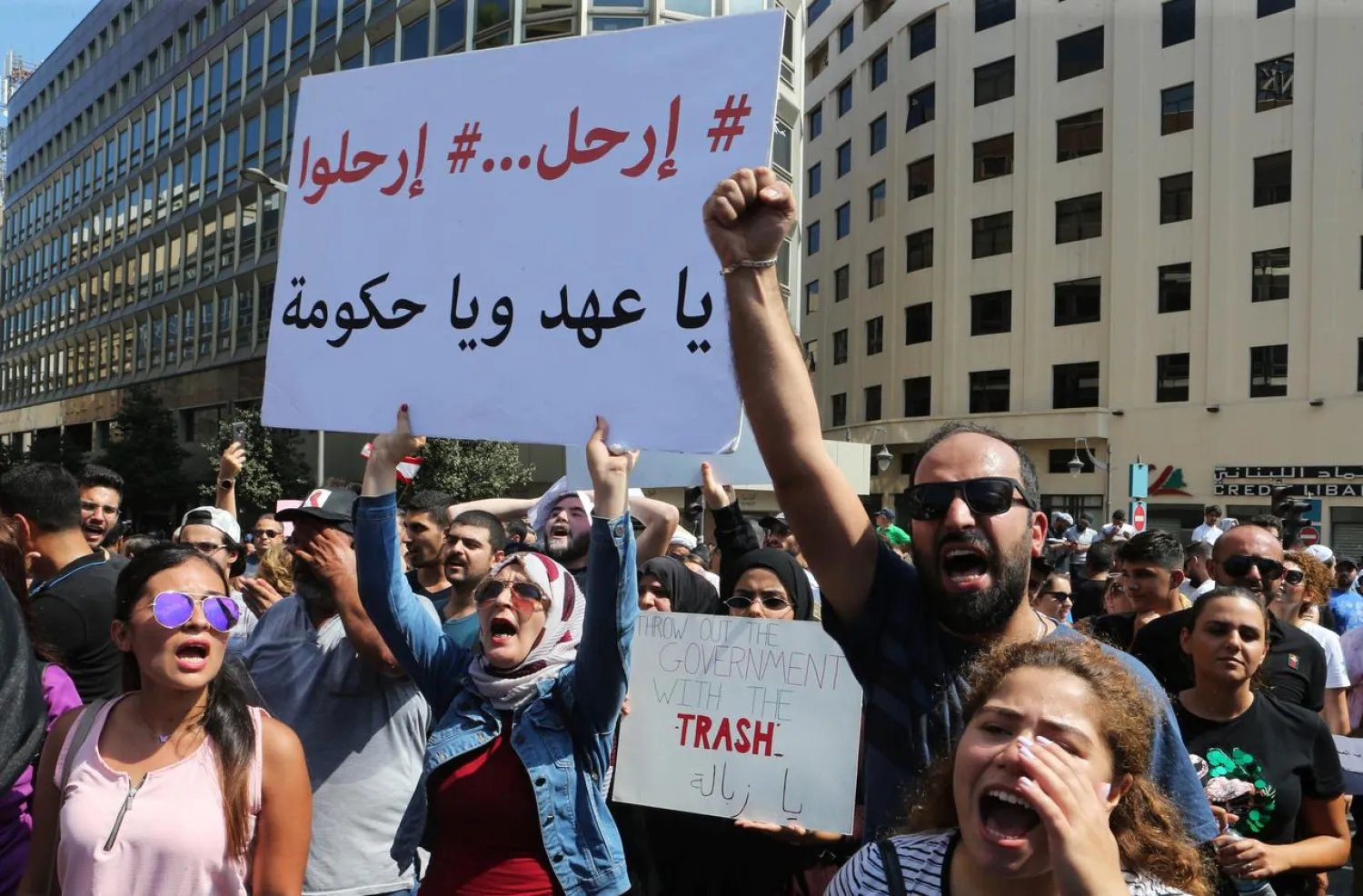The Lebanese government had frozen recruitment but then, around the time of a key election, thousands of people suddenly landed civil servant jobs.
The alleged corruption case is just one of many stirring public anger in Lebanon, where protesters are calling out rampant graft they say has brought the economy to its knees, Agence France Presse reported Friday.
Cronyism in the public sector, bribes, conflicts of interest and dodgy procurement deals -- Lebanese have been angrily detailing their complaints in waves of mass protests since October, crying out that enough is enough.
The authorities have said they are determined to root out corruption, and state prosecutors frequently say they have launched a probe or questioned an official.
But experts and protesters are skeptical. How, they ask, are they expected to believe in change from leaders who benefit from the system and whose interest is to preserve it?
In August 2017, Lebanon passed a law to halt all recruitment in the public sector.
But after that decision and through 2018, more than 5,000 people were taken on in murky circumstances, a source at the oversight body for public administrations said.
That period coincided with the country's first parliamentary election in nine years.
"It's buying votes," says Assaad Thebian, who heads the anti-graft non-governmental organization Gherbal Initiative.
"When you give someone a job, you're buying their loyalty and that of their relatives," he said.
Lebanese media have also accused key political parties of arranging hundreds of illegal employments at state-owned telecommunications firm Ogero in 2017 and 2018.
Anti-corruption watchdog Transparency International said in December that almost one in two Lebanese had been offered a bribe for a vote.
Parliament's finance committee investigated 5,000 hirings, and the file has been transmitted to the Court of Audit.
Committee chairman MP Ibrahim Kenaan said it was not his place to analyze what had happened.
"But logically, it's a political issue," he said.
"It was a period of elections. Maybe it was easy to just provide someone with a job.
"Maybe it's to do with... people being used to no one being held accountable."
But the lawmaker, who represents the Free Patriotic Movement of President Michel Aoun, now under fire for its record in power, said things would change. "Now there's accountability -- at least we're trying," he said.
Laws are being drafted to prevent illicit enrichment and retrieve stolen public funds, Kenaan said.
But anti-graft activist Thebian warns political will is lacking.
"It's strange that a state that wants to battle corruption has not yet fired a single civil servant, tried a single minister or official," he said.
Protesters say they are fed up with a political class dominated for decades by the same powerful families who also pull strings in business.
As they are hit by an acute liquidity crisis and price hikes, they ask how they can trust a political elite with ties to the banking sector.
Lebanon is weighed down by a huge public debt, most owed to local banks benefiting from high interest rates.
"The major problem is conflict of interest -- perceived or actual," said Jad Chaaban, an economics professor at the American University of Beirut.
"There is no way that you, as a minister or prime minister or member of parliament, can act against the interest of the institution that you have shareholding in."
Critics say corruption extends to public procurement.
Another source at the oversight commission claims the government "meddles" by drawing up invitations to tender with "conditions only met by a single company".
Similar complaints have been made about the Council for Development and Reconstruction and the Southern Council.
Engineers' syndicate head Jad Tabet said the political class was "sharing the cake" through opaque construction deals.
It is done "through attributing big construction projects to entrepreneurs linked to these political forces", he said.
In its Corruption Perceptions Index for 2019, Transparency International ranks Lebanon 137 out of 180 countries.
Even in the private sector, activists say businessmen use their political connections to skirt legislation for their benefit.
On a beach in Beirut, for example, the Eden Bay resort has drawn crowds in recent months to protest against illegal encroachment on the public waterfront.
Tabet says he filed a report denouncing eight infractions by the developers, Achour Holding, at the request of the president in 2017.
They included building on the public shoreline, and falsifying a topographic study to maximize buildable area when requesting a building permit, he said.
But Achour Holding's lawyer, Bahij Abou Mjahed, insists construction was legal.
"There isn't a single executive, judicial, oversight or security body that hasn't examined the Eden Bay case," he said.
"If we have committed a violation, take us to court."
Environmental activists complained to the State Council, who briefly suspended construction in 2017. But then it backed down, and the resort opened the following year.
"Despite the pressure, this man was able to get away with it," Tabet says, referring to the businessman behind Ashour Holding.
"He seems to have connections almost everywhere."














